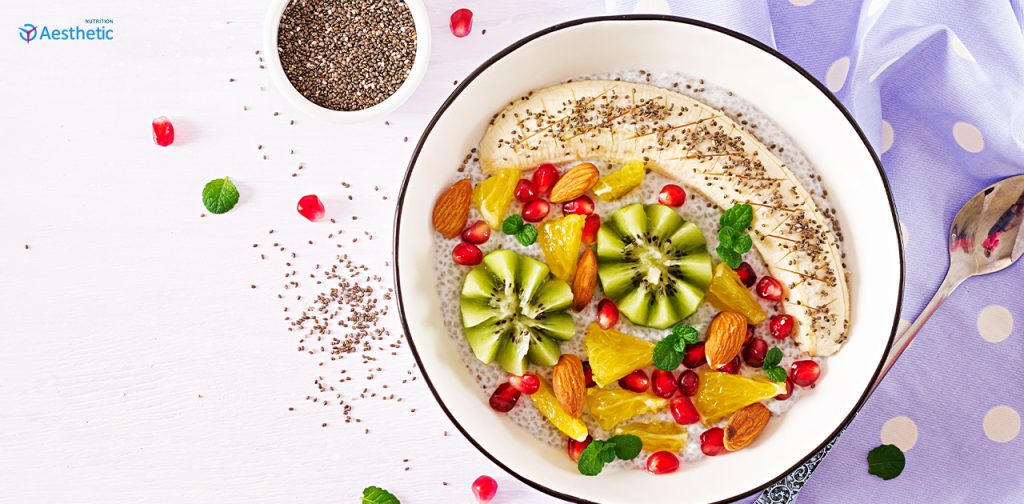Go the Mediterranean Way
With the pandemic unleashing the new fever for a healthy, sustainable lifestyle, one in every six people around the world is considering changing his or her eating habits to achieve goals such as weight loss, healthy living, and mental health enhancement. Now, there are countless dieting options available, from incredibly restrictive to more balanced and manageable meal plans and it can be quite challenging to find the best one for you.
Amongst those diet regimes, the Mediterranean diet is ranked as one of the best diets. Many studies have found it to be one of the healthiest ways to live. It is linked to innumerable health benefits such as lowering cholesterol, improving heart health, aiding digestion, longevity, and weight loss. In fact, it’s pretty tough to fault the Mediterranean meal plan. So, if you are keen on changing your eating habits, read through this article to know more about the Mediterranean diet.
What’s a Mediterranean diet?
The foundation of the Mediterranean Diet is derived from the traditional cuisine of the countries bordering the Mediterranean Sea. Individuals living in the Mediterranean have been eating this way for hundreds of years now. While there is no specific definition of the Mediterranean diet, it is widely known as a meal plan that includes whole grains, nuts and seeds, fruits, vegetables, and olive oil. The fundamental elements of the Mediterranean lifestyle are sharing healthy meals with family and friends while relishing a glass of red wine and physical activity.
Why the Mediterranean?
A well-balanced, suitable, and sustainable diet combined with regular exercise can help maintain your body and mind in good shape. Well, that’s just the perfect description of the Mediterranean way. The icing on the cake is that it has fewer restrictions, unlike any other diet plan.
Here are five reasons why you should opt for the Mediterranean diet.
- You don’t have to count your calories
Yes, you heard it right. You don’t need a calculator to monitor your calorie intake. Instead, you ought to swap out the bad fats for good ones—go for olive oil instead of butter; skip sugary, fancy desserts and enjoy fresh fruits; fish or poultry rather than red meat. Eat tasty veggies, beans, and nuts (but stick to a handful a day). You can have whole-grain bread and wine, however, in moderate amounts.
- Fresh Food
In the Mediterranean diet, the food is absolutely fresh, and the meal course focuses on seasonal produce, eliminating the role of frozen or processed food. The menu includes yummy multi-bean salads and colorful veggie-filled tomato gazpacho.
- Bread, Wine, and Fat
Unlike other diets, the Mediterranean diet does not prohibit the consumption of bread and fat in your daily meals. However, you will have to swap the saturated and trans-fat for good fat and the white bread for whole-grain bread. That sounds simple, doesn’t it? Well, there is more. Most Mediterranean meal plans allow red wine in moderation.
Whole-grain bread is healthier than bread made with white flour because it contains more protein and minerals. When it comes to fat, look for the good kind, such as nuts, olives, and olive oil. These fats add flavor and help fight diseases from diabetes to cancer. With respect to wine, some studies suggest that one glass of red wine a day for women and two for men may be good for the heart.
- Colossal array of menu
The Mediterranean diet is an extensive collection of cuisines. It includes Greek, Italian, Spain, Turkey, Morocco, and other Mediterranean countries’ cuisines. However, one must stick to the basics: whole-fat dairy, light on red meat with olive oil, and loads of fresh veggies, fruits, and whole grains.
Healthy way of losing weight
Losing weight while eating nuts, cheese, and oils is indeed a miracle. The Mediterranean way of food and, of course, the slower eating style will make you feel full and satisfied. This way, you will stick to a diet plan. The diet plan works wonders for weight loss when combined with regular exercise.
How to make a Mediterranean meal?
It’s essential to stick to the foods at the core of the eating plan to reap the benefits of the Mediterranean diet. For starters, include core foods such as vegetables, fruits, beans, herbs, whole grains, spices, nuts, and healthy fats daily, fish and seafood twice a week, and dairy foods, eggs, and poultry in moderation and occasionally. Red meats and sweets must rarely be included in the meal.
Now, let’s look into the list of common foods and flavors in the diet, categorized based on the frequency of their serving.
Eat Mostly:
Vegetables and Tubers – artichokes, arugula, beets, broccoli, brussels sprouts, cabbage, carrots, celery, celeriac, chicory, collard cucumber, dandelion greens, eggplant, fennel, kale, leeks, lettuce, mâché, mushrooms, mustard greens, nettles, okra, onions (red, sweet, white), peas, peppers, potatoes, purslane, radishes, rutabaga, scallions, shallots, spinach, sweet potatoes, turnips, zucchini
Grains – wheat berries, bread, barley, buckwheat, bulgur, couscous, durum, freekeh, millet, oats, and polenta.
Herbs and Spices – anise, basil, bay leaf, chilis, clove, cumin, fennel, garlic, lavender, marjoram, mint, oregano, parsley, pepper, Aleppo pepper, rosemary, sage, savory, sumac, tarragon, thyme
Fruits – avocados, apples, apricots, cherries, dates, figs, grapefruit, grapes, lemons, melons, nectarines, olives, oranges, peaches, pears, pomegranates, pumpkin, strawberries, tangerines, tomatoes
Nuts, Seeds, & Legumes – almonds, beans (cannellini, chickpeas, fava, green, kidney), cashews, hazelnuts, lentils, pine nuts, pistachios, sesame seeds (tahini), split peas, walnuts
Eat-in Moderation:
Poultry & Eggs – chicken, duck, guinea fowl, quail chicken eggs, duck eggs, quail eggs
Cheese and Yogurt – Brie, Chevre, Feta, Halloumi, Manchego, Parmigiano-Reggiano, Pecorino, ricotta Greek yogurt
Fish and Seafood – abalone, cockles, clams, crab, eel, flounder, lobster, mackerel, mussels, octopus, oysters, salmon, sardines, sea bass, shrimp, squid, tilapia, tuna, whelk, yellowtail
Limit:
Sweets – treats made with fruits, nuts, whole grains, and minimal sugars baklava, biscotti, crème caramel, chocolate, gelato, kunefe, lokum (Turkish delight), sorbet
Meats – beef, goat, lamb, mutton, pork
Pros and Cons
Mediterranean cuisine is a blend of scrumptious and healthy food. People who switch to the Mediterranean diet are so enamored with its flavor and nutritional value that they swear they will never eat any other way again. Of course, like any other diet, the Mediterranean style comes with its own pros and cons, but it is associated with the individual’s eating style.
Here are some generic benefits and drawbacks of this eating plan.
Benefits
- Covers all major food groups and helps maintain a balanced diet with diverse flavors.
- The diet can help reduce the risk of diseases such as cancer, improve memory function, control diabetes, promote heart health, support blood sugar control, and reduce inflammatory markers.
- Aids in mental health management and weight management
- Eating the Mediterranean way helps the planet
Drawbacks
- Some of the ingredients or foods are expensive.
- Cooking can be time-consuming.
- Limitations on red meat and alcohol
- The diet might not be ideal for everyone; additional guidance may be necessary for specific conditions.
- Some of the dietary restrictions might be challenging.
The Mediterranean diet is one of the most delectable and clean eating methods. You are undoubtedly doing a favor to both your body and the planet. However, keep in mind that each person is different, and each body type is unique. Therefore, one has to understand his or her body’s needs and regulate a customized diet plan. Nevertheless, if you are looking for a diet plan that transforms your health, aids in slow and steady weight loss and management, and a tasty way of eating that won’t leave you feeling deprived, the Mediterranean diet is the real choice and definitely, worth trying. On the other hand, if you are looking for a plan that involves serving sizes and calories, the Mediterranean diet is probably not your cup of tea.













